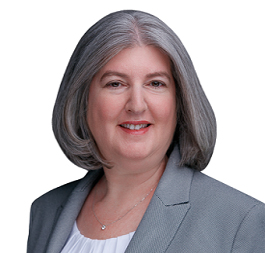|
PLAYING
HOA LAWYER
QUESTION:  We have a member who is a criminal attorney who gives legal interpretation of our CC&Rs on the community's Facebook. Often, he is incorrect and it appears he is using it to achieve personal goals. Is this appropriate? –anonymous We have a member who is a criminal attorney who gives legal interpretation of our CC&Rs on the community's Facebook. Often, he is incorrect and it appears he is using it to achieve personal goals. Is this appropriate? –anonymous
ANSWER: This is a common problem and not limited to attorneys. Every association seems to have someone practicing law when they shouldn't. Some are lawyers, and others have never been to law school.
Ethics Rules. As for your criminal lawyer, it is not an ethical breach for him to offer legal opinions outside his area of the law. Under the State Bar's Rules of Professional Conduct,
If a lawyer does not have sufficient learning and skill when the legal services are undertaken, the lawyer nonetheless may provide competent representation by (i) associating with or, where appropriate, professionally consulting another lawyer whom the lawyer reasonably believes to be competent, (ii) acquiring sufficient learning and skill before performance is required, or (iii) referring the matter to another lawyer whom the lawyer reasonably believes to be competent. (Rule 1.1(c))
If it's an owner playing lawyer, there is nothing you can do except to correct his erroneous opinions. You should have the association's legal counsel correct them with a legal opinion that can be published to the membership.
If it's a director playing lawyer, it is inappropriate. It creates potential exposure for the association. If someone relies on his advice and is damaged, not only could he be sued but the association as well.
Social Media. As a rule, directors should stay off of social media. The only time anything should be posted on Facebook, Nextdoor or any other platform is when the information has been approved by the board. Directors should be speaking with one voice.
RECOMMENDATION: Boards should adopt an ethics policy that includes restricting directors from discussing board business on social media without board approval.
LETTERS FROM
THE BOARD
QUESTION:  Aren't all board members equal? When emails and letters go out to the owners can they be from the president alone or should they be from the entire board? –Amy N. Aren't all board members equal? When emails and letters go out to the owners can they be from the president alone or should they be from the entire board? –Amy N.
ANSWER: As George Orwell pointed out, all directors are equal but some directors are more equal than others. If anyone gets to put their name on a letter to the membership, it's the President.
As a matter of policy, some boards sign their letters "Board of Directors" while others personalize them with the President's name. Boards can decide for themselves how they want to handle the signature block. The only rule is that all communications to the membership be authorized by the board.
ARCHITECTURAL
COMMITTEES
QUESTION:  In our CC&Rs, it says that failure of the architectural committee to act within 30 days after the plans have been submitted shall constitute approval. Then it goes on to say that actions of the committee may be appealed to the board. What does this mean? I don't believe we have a committee. Only a board consisting of three homeowners. Would the committee and board be one in the same? –Ruth G. In our CC&Rs, it says that failure of the architectural committee to act within 30 days after the plans have been submitted shall constitute approval. Then it goes on to say that actions of the committee may be appealed to the board. What does this mean? I don't believe we have a committee. Only a board consisting of three homeowners. Would the committee and board be one in the same? –Ruth G.
ANSWER: In your case, yes, they are the same. It is common in small associations for boards to take on the role of architectural committee. It's because they can't get anyone to volunteer to be on the committee. In large associations, it is common to have an ARC composed of volunteers, with an architect hired by the association advising the committee.
If the ARC turns down a set of plans, the applicant has the right to appeal the decision to the board. (Civ. Code § 4765(a)(5).) When the board is the ARC, there is no one to appeal to and the committee's decisions are final. You should add something to your rules that the board is the architectural committee and applications should be submitted to the board.
EMAIL DISCUSSIONS
 As previously reported, the Court of Appeal had ruled that email communications between directors do not violate the Open Meeting Act. (LNSU #1 v. Alta Del Mar) Because it was a published decision, an attorney who disagreed with the court petitioned the Supreme Court to depublish the case. As previously reported, the Court of Appeal had ruled that email communications between directors do not violate the Open Meeting Act. (LNSU #1 v. Alta Del Mar) Because it was a published decision, an attorney who disagreed with the court petitioned the Supreme Court to depublish the case.
Yesterday, the Supreme Court denied the request and the Alta Del Mar case can be relied upon as binding precedent. It means directors can discuss matters via email that might come before the board, provided they do not make any decisions. Final discussions and decisions on non-executive session matters must take place in a properly noticed open meeting.
FUNDING BALCONY INSPECTIONS
AND REPAIRS
  With the approaching deadline for associations to perform balcony inspections, Adrian Adams and Laurie Poole will discuss the legal requirements for inspections and how to fund the inspections and repairs. With the approaching deadline for associations to perform balcony inspections, Adrian Adams and Laurie Poole will discuss the legal requirements for inspections and how to fund the inspections and repairs.
They will also address who is responsible for repairing damage and whether boards can bill individual owners for reimbursement. If damage is due to construction defects, who is responsible for repairing it? Time will be set aside for questions at the end.
REGISTER HERE for the January 25, 2024 webinar. After registering, you will receive a confirmation email containing information for the meeting.
Sledgehammers. HOAs are not typical tax exempt “nonprofit” organizations. They are subject to tax on “non exempt function” revenue. Typically, interest income. If the HOA qualifies for and files a federal form 1120H and has obtained the 23701t California HOA tax exemption, there is no concern about excess funds. The tax rate difference on taxable income between form 1120 and 1120H is now only 9%. A difference that rarely warrants the risks associated with filing the 1120. PS: The California legislature is not “schizophrenic.” It just lacks individual and collective knowledge and ability, pounds tacks with sledgehammers, and never had a decision science class in its life… -Donald W. Haney CPAret., MBA, MS(Tax)
I enjoy your informative newsletters. –Russ F.
Great sense of humor. –Joyce S.

|
DISCLAIMER. Our newsletter provides commentary, not legal advice. Boards need to retain an attorney to review all the facts and give a legal opinion on the issues they face. We serve as corporate counsel to California associations only. Request a proposal to represent your association.
PAST NEWSLETTERS. Readers can find current and prior year newsletters posted here. Older newsletters are not posted since the information they contain can change over time with new statutes and case law. The website, however, is kept updated with current information which can be found via the "Index" or through our website's internal "Google Search" feature. |
|
|